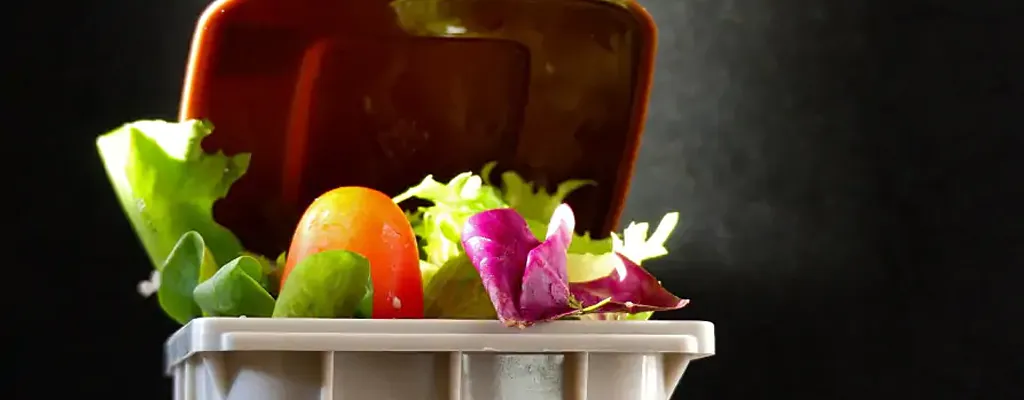From April 2026, mandatory food waste recycling will be rolled out across the UK as part of the government’s ongoing strategy to reduce environmental impact and create a more sustainable future. This landmark change will affect households, businesses, and local authorities, and marks a major step forward in tackling one of the nation’s most pressing environmental challenges: food waste.
But what does this really mean? And how should you – whether as a homeowner, organisation, or waste service provider – prepare for it?
Here’s everything you need to know.
Why Is Food Waste Recycling So Important?
The UK throws away approximately 9.5 million tonnes of food waste each year – much of which ends up in landfill. Not only is this wasteful in terms of resources, but decomposing food in landfills produces methane, a potent greenhouse gas that significantly contributes to climate change.
By separating and recycling food waste, we can:
- Reduce greenhouse gas emissions
- Create renewable energy through anaerobic digestion
- Produce nutrient-rich fertiliser for use in agriculture
- Improve recycling rates overall by removing contaminants from dry recyclables
In short, food waste recycling is a win for the planet, the economy, and local communities.
What’s Changing in April 2026?
Under new government regulations outlined in the Environment Act 2021 and following the outcomes of DEFRA’s Consistency in Household and Business Recycling consultation, all local authorities in England will be required to collect food waste separately from other types of waste at least once a week starting April 2026.
This brings England in line with Wales and Scotland, where similar policies have already been implemented or are underway.
The key changes include:
- Weekly separate food waste collections for all households in England
- Mandatory separation of food waste by businesses and non-domestic premises, such as schools and hospitals
- Ban on food waste going to landfill or incineration (where separate collection is available)
- Funding to support local authorities with infrastructure, such as vehicles and containers
What This Means for Households
For most households, this change will mean using a food waste caddy alongside your existing recycling and rubbish bins.
You’ll be encouraged (and eventually required) to place:
- Leftovers and plate scrapings
- Expired or spoiled food
- Vegetable and fruit peelings
- Coffee grounds and tea bags
- Eggshells and dairy waste
…into your designated food waste bin. These collections will then be taken to anaerobic digestion plants or composting facilities, where they are processed into energy and fertiliser.
How to Prepare:
- Look out for communication from your local council
- Start separating food waste now, if you don’t already
- Use compostable liners to keep caddies clean (check if your council accepts them)
- Keep your caddy in a ventilated spot to reduce odour
What This Means for Businesses
If your business generates food waste – whether you run a restaurant, cafe, school, supermarket, care home, or office – you’ll be legally required to separate and recycle food waste from April 2026.
This may require:
- New internal and external bins for food waste
- Staff training on how to separate food properly
- Adjustments to existing waste contracts
- Working with licensed waste carriers who can handle food waste legally and responsibly
Not complying with the new regulations could result in penalties or fines, so early preparation is key.
The Role of Waste Service Providers
For waste and recycling providers, this policy shift represents both a challenge and an opportunity. With demand set to increase for food waste collection, storage, and processing, providers must:
- Invest in new collection vehicles and storage containers
- Upgrade transfer stations and infrastructure
- Expand or partner with anaerobic digestion or in-vessel composting facilities
- Train staff and update logistics systems to handle increased complexity
Early investment and planning will be crucial to meeting the requirements of clients and complying with regulatory changes.
What Happens to the Food Waste?
Food waste collected from homes and businesses will be sent to specialist facilities where it is turned into:
- Biogas – used to generate renewable electricity and heat
- Biofertiliser – a nutrient-rich product applied to farmland
- In some cases, compost for agricultural or landscaping use
This process significantly reduces the carbon footprint of food waste and helps close the loop on our food systems.
| What’s Happening? | Separate food waste collection becomes mandatory across England |
|---|
| When? | April 2026 |
| Who’s Affected? | All households, businesses, and non-domestic organisations |
| Why? | To reduce emissions, increase recycling, and support sustainability |
| What to Do Now? | Start separating food waste, educate staff, prepare for infrastructure needs |
The upcoming changes to food waste recycling in April 2026 represent a significant shift in the UK’s approach to sustainability and waste management. By taking action now – whether you’re a homeowner, a business, or a waste service provider – you can stay ahead of the curve and contribute to a cleaner, greener future for all.


